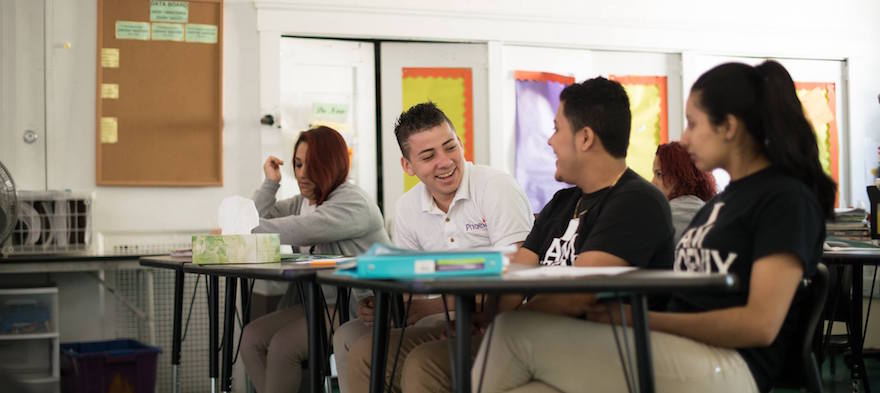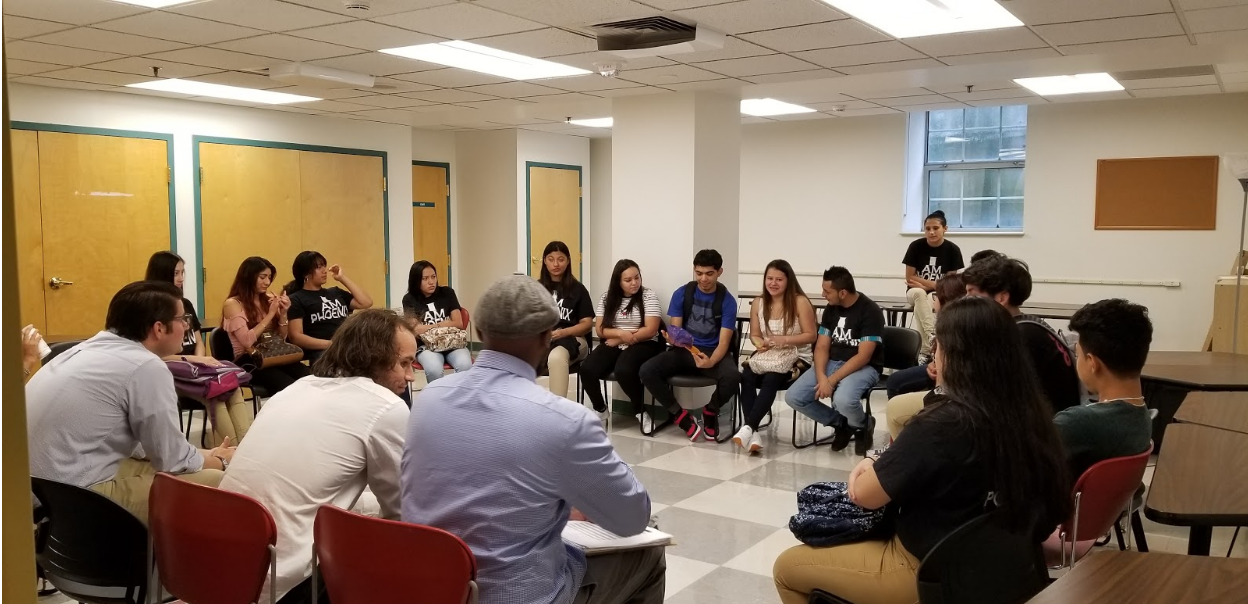
Dec 20, 2018 12:00:00 AM
by Liz Murray
 Finally, educate. After a huge scope of design work, our team integrated a newly defined set of core competencies into our curriculum: reading critically, learning from the past, leading inquiry, expressing oneself boldly, developing self-knowledge and sustaining wellness, reasoning quantitatively, using tools skillfully and navigating conflict. Students began completing performance tasks and Mastery Portfolio Projects to demonstrate mastery of both academic and socio-emotional skills in connection to these competencies, to ensure they are prepared to succeed in the 21st century workforce. As we implement over the next three years, the switch to competency based learning should provide more flexible pathways to graduation and ensure that we are preparing our graduates for the demands of college and jobs of the 21st century.
Finally, educate. After a huge scope of design work, our team integrated a newly defined set of core competencies into our curriculum: reading critically, learning from the past, leading inquiry, expressing oneself boldly, developing self-knowledge and sustaining wellness, reasoning quantitatively, using tools skillfully and navigating conflict. Students began completing performance tasks and Mastery Portfolio Projects to demonstrate mastery of both academic and socio-emotional skills in connection to these competencies, to ensure they are prepared to succeed in the 21st century workforce. As we implement over the next three years, the switch to competency based learning should provide more flexible pathways to graduation and ensure that we are preparing our graduates for the demands of college and jobs of the 21st century.
Liz Murray has over 20 years of experience in urban education as a teacher, principal and system level leader. She is passionate about building school environments with highly engaging learning opportunities and positive culture for all students, teaching and learning and leadership development. Prior to joining the Phoenix Charter Academy team, Liz taught fifth and sixth grade humanities in Boston and from 2002-2014, served as a middle school humanities teacher, middle school principal and as the K-12 Director of Leadership and Professional Development at Prospect Hill Academy Charter School in Somerville and Cambridge. She is a graduate of Wesleyan University in Middletown, Connecticut, Harvard University’s Graduate School of Education and the Principal Residency Network through the Center for Collaborative Education and Northeastern University.
Few issues in education spark more tension and debate than standardized testing. Are they a tool for equity or a burden on students? A necessary check on school systems or a flawed measure of...
Charter schools are public schools with a purpose. Operating independently from traditional school districts, they're tuition-free, open to all students, and publicly funded—but with more flexibility...
Despite the benefits of a diverse teaching force, prospective teachers of color fall out of our leaky preparation pipeline at every stage: preparation, hiring, induction, and retention. Here’s what...
Ed Post is the flagship website platform of brightbeam, a 501(c3) network of education activists and influencers demanding a better education and a brighter future for every child.
© 2020-2025 brightbeam. All rights reserved.
Leave a Comment